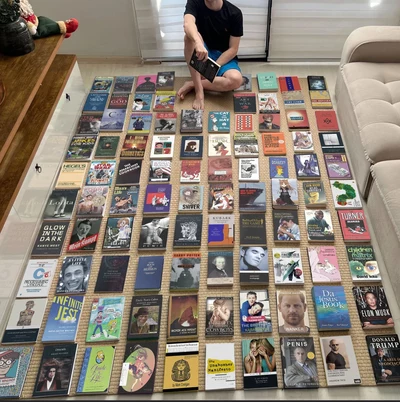This pop psychology books premise is thus:
"Imagine that men are from Mars and women are from Venus. One day long ago the Martians, looking through their telescopes, discovered the Venusians. Just glimpsing the Venusians awakened feelings they had never known. They fell in love and quickly invented space travel and flew to Venus."
In the course of our joint study, Mark and I learned that while “Martians tend to pull away and silently think about what's bothering them, Venusians feel an instinctive need to talk about what's bothering them.” As if the book's central planetary metaphor weren't enough, Gray invokes, among others, a dragon, a cave, a wave, and a rubber band to describe how people tend to operate in heterosexual relationships. Women get advice on how to tell a story so it won't irritate her man. (Tell him the ending first.)

Gray assures us that neither is superior. The entire premise is easier to absorb if you're a reader who puts stock in the phrase “the opposite s*x,” which we encountered so many times in the text that I started to wonder if Gray had popularized the phrase. Many shared eye rolls aside, Mark reported pleasant feelings of recognition.

After all, in spite of well-meaning feminist parents, he'd been raised to act exactly as Gray anticipated, and so had I. Mark mostly agreed with Gray's assertion that a “man's deepest fear is that he is not good enough or that he is incompetent.” In the margin next to that same sentence in my copy, I'd written “lol.”
What a bword lmao 
Things got worse. Mark surprised himself by appreciating Gray's openness about men's sensitivities and recognized the cultural messages that teach men to avoid sharing what's inside. At times, Gray verged on the profound. (“Not to be needed is a slow death for a man.”) Mark admitted that he agreed with Gray about men's outsize need to be trusted. He chafed when I asked if he'd washed his hands after coming back from the store. “Can't you trust me with basic hygiene?” he reasonably wanted to know. (I could not. It's a pandemic!)



“Not all messages have to speak to all people at all times.” I, on the other hand, found myself feeling afflicted every time I encountered any good advice (when someone says they're “fine,” believe them until they say otherwise? impossible), and it wasn't just because I felt caricatured. (I do not, in fact, enjoy shopping!) It was also that the snob in me didn't want these dicta to apply to my life. I'm not a simple creature. I am a skeptic. I subscribe to The New York Review of Books, for God's sake!



If I were to seek advice on my marriage at all, it would be from someone with better taste in fonts.

And MANY MORE BAD TAKES lol 






 and
and 



Jump in the discussion.
No email address required.
Holy shit. I don't think there's any sarcasm or self awareness in this statement.
Jump in the discussion.
No email address required.
More options
Context